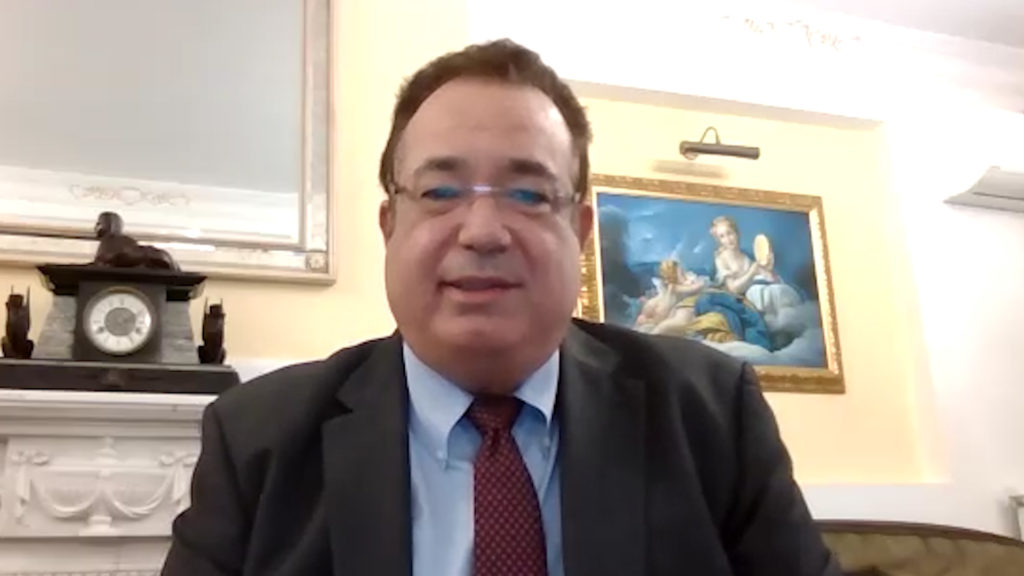Authors: Virginia Valentine1 and Debbie Hinnen2
- Virginia Valentine, Clinical Nurse Specialist- Clinica La Esperanza, Albuquerque, NM, USA.
E: vv@diabetestalk.com - Debbie Hinnen, Advanced Practice Nurse and Certified Diabetes Educator, Memorial Hospital Diabetes Center, University of Colorado Health, Colorado Springs, CO.
E: dh@sugar3rn.com
COVID-19 is spreading rapidly around the world and we must consider how this could impact our patients with type 1 and type 2 diabetes. There have been some observational outcomes data reported in The Lancet Respiratory Medicine that may help answer these questions.
1. Xiaobo Yang et al. reported on 32 non-survivors from a group of 52 intensive care unit (ICU) patients with COVID-19 and the most distinctive comorbidities were: cerebrovascular diseases (22%) and diabetes (22%).1
2. Guan et al. reported on 1,099 patients with confirmed COVID-19, of whom 173 had severe disease with comorbidities of hypertension (23.7%), diabetes mellitus (16.2%) and coronary heart disease (5.8%).2
3. In a third study, Zhang et al. reported on the clinical characteristics of 140 patients with COVID-19 and noted that 30% had hypertension and 12% had diabetes.3
Why are we seeing poorer outcomes in people with hypertension and diabetes? Human pathogenic coronaviruses bind to their target cells through angiotensin-converting enzyme 2 (ACE2), which is expressed by epithelial cells in the lungs, intestines, kidneys, and blood vessels.4 The expression of ACE2 is substantially increased in patients with type 1 or type 2 diabetes who are treated with ACE inhibitors and angiotensin-receptor blockers (ARBs) and when hypertension is treated with ACE inhibitors and ARBs, this results in upregulation of ACE2.5
Consequently, the increased expression of ACE2 could facilitate infection with COVID-19. Fang, et al. have hypothesized that diabetes and hypertension treatment with ACE-2-stimulating drugs increases the risk of developing severe and fatal COVID-19. Obviously, this would need to be confirmed in further studies, as well the possibility that this might be related to a genetic predisposition for an increased risk of severe acute respiratory syndrome coronavirus 2 (SARS-COV-2) infection, which might be due to ACE2 polymorphisms that have been linked to diabetes, stroke, and hypertension, specifically in Asian populations.6
The American Diabetes Association (ADA) assures us that people with diabetes are not more likely to get COVID-19 than the general population, but they could face worse outcomes.7 Will a person with type 1 or type 2 diabetes meeting glucose targets improve outcomes? Caring for patients with diabetes requires diligence in the best of circumstances, and during this crisis it is even more important. Diabetes care strategies for people with COVID-19, or those who are at risk for the virus are not unique but every effort should be made to achieve optimal glucose control. It is also important to be prepared in case of changes in disaster level.8 For a review of recommended disaster plans and a checklist go to: https://www.diabetesdisasterresponse.org/.
Provocative questions for healthcare providers
Q. Should we work harder to help patients get glucose levels in target range?
Absolutely! There is no downside to this effort and may improve outcomes in case our population with diabetes contracts COVID-19.
Should we advise our patients to stop ACE inhibitors and ARBs for now?
This is definitely a question to be answered by research. For now, guidelines from ADA suggest the use of these agents in patients with microalbuminuria or for treatment of hypertension. It might be prudent if a patient is one on low dose ACE inhibitors without microalbuminuria and normal blood pressure to consider stopping it temporarily.
What should we advise patients with diabetes regarding being prepared for potential COVID-19 infection?
We should follow all local recommendations regarding social distancing and diabetes disaster response recommendations regarding being prepared. This must include a way for patients to get medications and refills in case your office closes. Remind patients to stock up on glucose monitoring supplies and pump supplies as well.
References
- Yang X, Yu Y, Xu J, et al. Clinical course and outcomes of critically ill patients with SARS-COV-2 pneumonia in Wuhan, China: a single-centered, retrospective, observational study. Lancet Respir Med. 2020. Available at: https://doi.org/10.1016/S2213-2600(20)30079-5 (accessed 20 March 2020).
- Guan W, Ni Z, Hu Y, et al. Clinical characteristics of coronavirus disease 2019 in China. N Engl J Med. 2020. Available at: https://www.nejm.org/doi/full/10.1056/NEJMoa2002032 (accessed 20 March 2020).
- Zhang JJ, Dong X, Cao YY, et al. Clinical characteristics of 140 patients infected by SARS-CoV-2 in Wuhan, China. Allergy, 2020; doi: 10.1111/all.14238. [Epub ahead of print].
- Wan Y, Shang J, Graham R, et al. Receptor recognition by the novel coronavirus from Wuhan: an analysis based on decade-long structural studies of SARS coronavirus. J Virol. 2020;94:e00127-20. DOI:10.1128/JVI.00127-20
- Li XC, Zhang J, Zhou JL, The vasoprotective axes of the renin-angiotensin system: physiological relevance and therapeutic implications in cardiovascular, hypertensive and kidney diseases. Pharmacol Res. 2017;125:21–38.
- Fang L, Karakiulakis G, Roth M, Are patients with hypertension and diabetes mellitus at increased risk for COVID-19 infection? Lancet Respir Med. 2020. pii: S2213-2600(20)30116-8. doi: 10.1016/S2213-2600(20)30116-8. [Epub ahead of print].
- American Diabetes Association. COVID-19 (coronavirus). Available at: www.diabetes.org/diabetes/treatment-care/planning-sick-days/coronavirus (accessed 20 March 2020).
- Diabetes Disaster Response Coalition. Coronavirus disease 2019 (COVID-19). Available at: www.diabetesdisasterresponse.org/ (accessed 20 March 2020).
Support: No funding was received in the publication of this insight article.
Published: 20 March 2020





